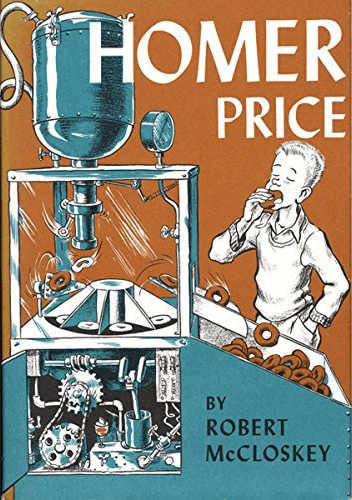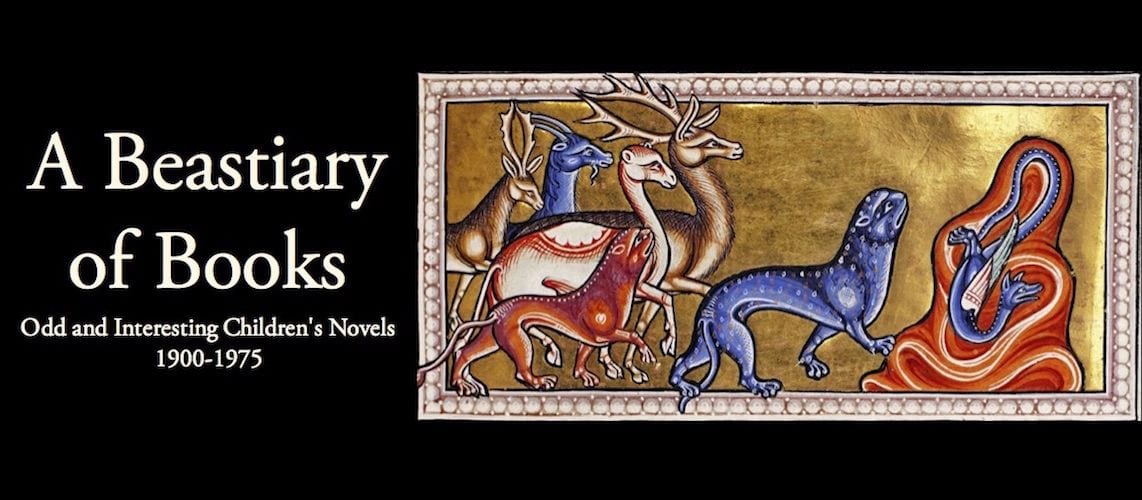 In a previous post I wrote about the Inventive Small-Town Animal-Loving Boy Whose Name Begins with H. The first of these books by nearly a decade was Homer Price (1942, by Robert McCloskey, better known for Make Way for Ducklings and Blueberries for Sal). Homer Price is clearly the original for this genre — it involves a pet skunk, the clever solving of mechanical or scientific problems, small-town folksiness (McCloskey’s illustrations here evoke Norman Rockwell), and of course a boy named Homer.
In a previous post I wrote about the Inventive Small-Town Animal-Loving Boy Whose Name Begins with H. The first of these books by nearly a decade was Homer Price (1942, by Robert McCloskey, better known for Make Way for Ducklings and Blueberries for Sal). Homer Price is clearly the original for this genre — it involves a pet skunk, the clever solving of mechanical or scientific problems, small-town folksiness (McCloskey’s illustrations here evoke Norman Rockwell), and of course a boy named Homer.
But in other ways Homer Price is strangely different from the rest. The style seems stilted if you are expecting the neutral prose of a children’s novel; but it clicks when your read it as someone spinning a yarn. Indeed, several of the stories in the sequel, Centerburg Tales, are narrated by Homer’s grandpa. The stories of both books are essentially tall tales, directly descended from the American oral folk tradition.
And then there is another layer of strangeness to this book. For context, four years earlier the picture-book Andy and the Lion by James Daugherty was published. It is a retelling of the Roman fable Androcles and the Lion, but set in 1930’s small town America. Homer Price takes this idea and runs with it. We are alerted to the deliberate choice of name in the frontispiece, which shows Homer Price with a statue of the Greek poet Homer.
Various stories in Homer Price retell classic tales, such as The Sorcerer’s Apprentice and the Greek myth of Atalanta. One chapter not only retells The Pied Piper, but has the characters acknowledge the connection. (They also bring up Rip Van Winkle and Odysseus’s sailors being called away by the sirens.) Homer has an uncle Ulysses (the Roman version of Odysseus), an uncle Telemachus (the son of Odysseus), and a grandpa Hercules. The title Centerburg Tales echos Chaucer’s Canterbury Tales from the middle ages. McCloskey may or may not have been poking fun at the clutter of literary references in James Joyce’s Ulysses (1933). But it’s clear that he was also deliberately and cheekily layering widely divergent (or perhaps not so divergent?) strains of story-telling tradition.

I have not read this one either. Is it also a hidden Gem?
It’s not my personal preferred sort of book, but there are kids out there who would love it, and I think it’s much more cleverly structured than it’s usually given credit for.